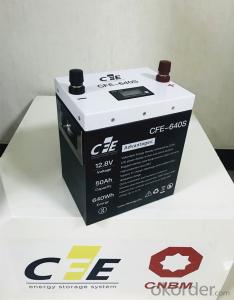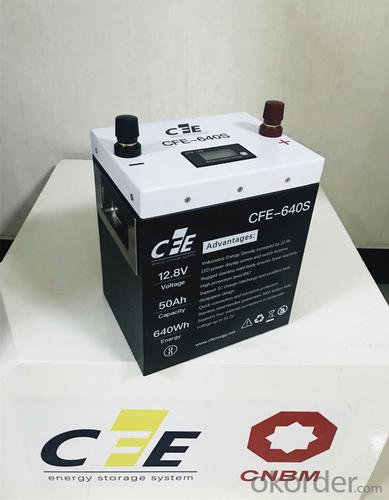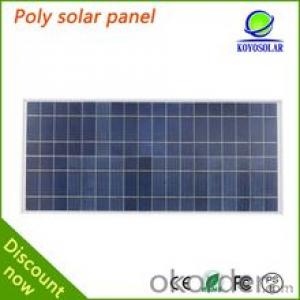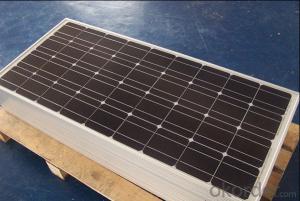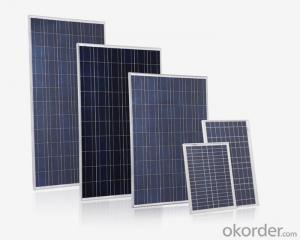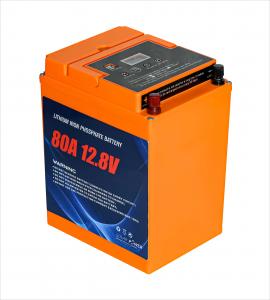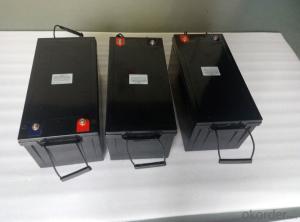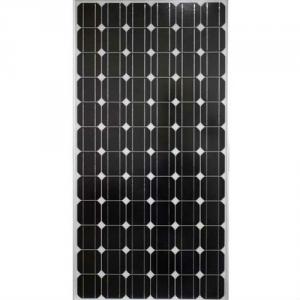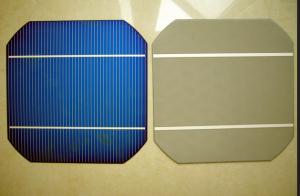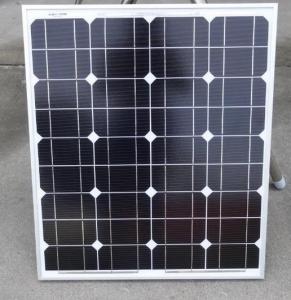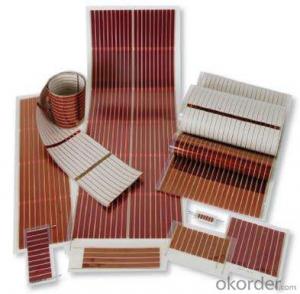Organic Tandem Solar Cells Compatible Lithium Battery 12.8V 50AH CFE Brand China Supplier
- Loading Port:
- China main port
- Payment Terms:
- TT OR LC
- Min Order Qty:
- 20 pc
- Supply Capability:
- 1000000 pc/month
OKorder Service Pledge
OKorder Financial Service
You Might Also Like
Specification
CFE is committed to becoming a first-class supplier of Li-ion power battery and LFP ESS. CFE's core management and R&D team has been engaged the clean energy business for more than 20 years. Our mission is to promote the use of clean energy and ultimately achieve carbon neutrality. So far, more than 2 million CFE products are being used by users around the world, and more than 3GWh clean energy has replaced fossil energy . We use the most stringent quality management, independent production of modules, PACK, BMS and systems, and deliver products with high quality and low cost a timely manner to achieve our commitment to environmental protection and a green earth
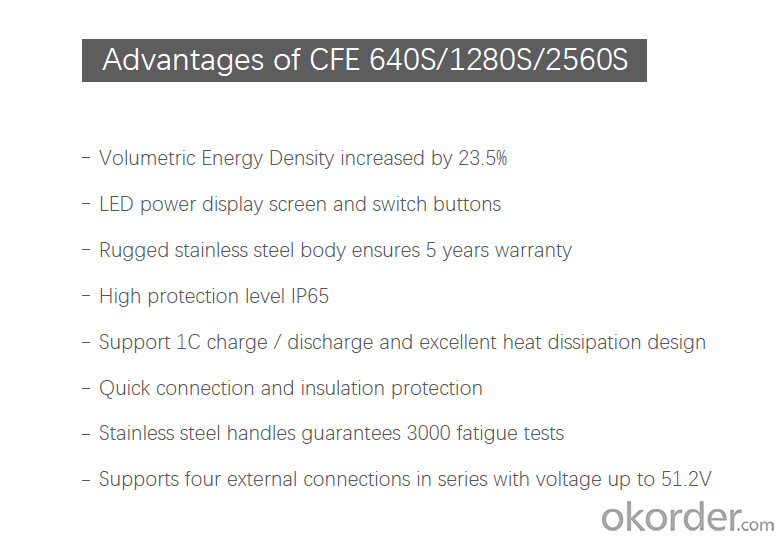
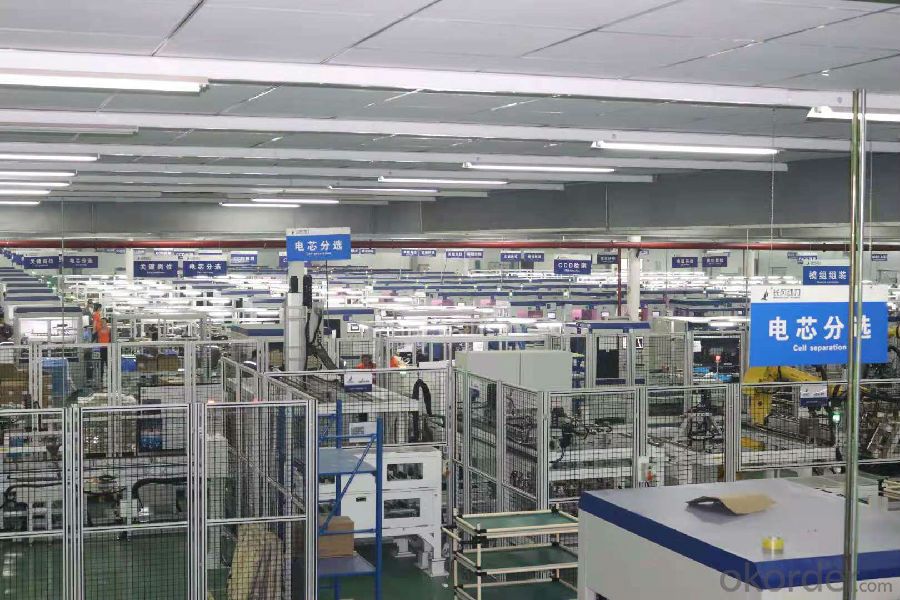
Advantages of CFE 640S/1280S/2560S
LED power display screen and switch buttons
Rugged stainless steel body ensures 5 years warranty
High protection level IP65
Support 1C charge / discharge and excellent heat dissipation design
Quick connection and insulation protection
Stainless steel handles guarantees 3000 fatigue tests
Supports four external connections in series with voltage up to 51.2V
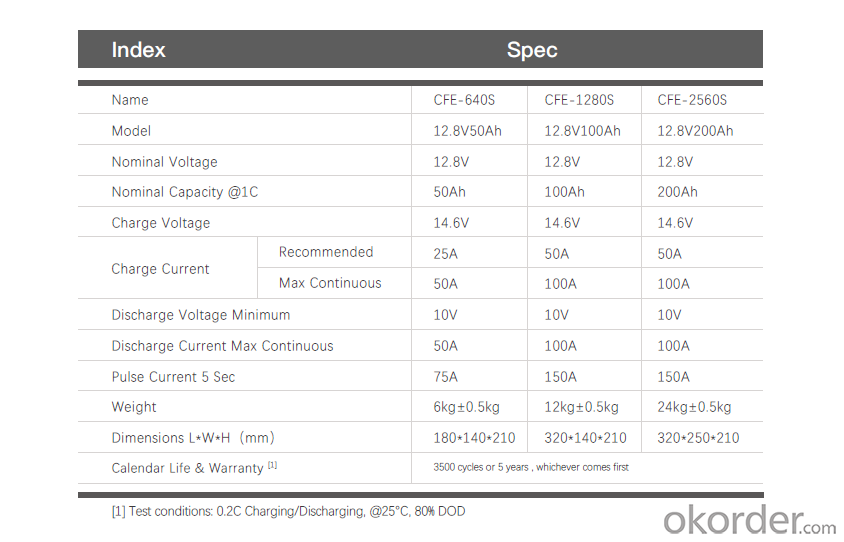
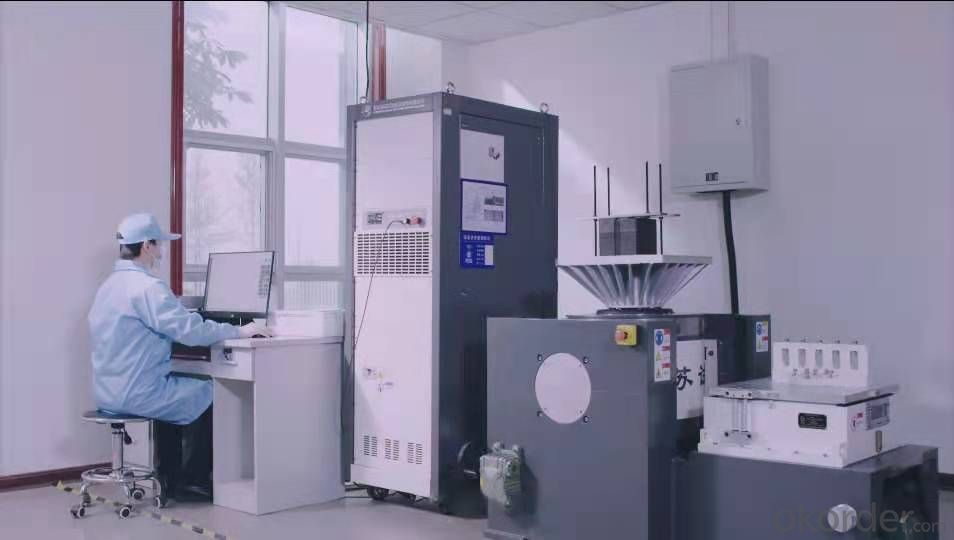
- Q: What do the solar cell suppliers provide once we purchase the order from the solar cells from them.
- The solar cells suppliers might also help you to finish you solar cells installation process, which is considered to be a necessary but valuable service they can provide to the clients.
- Q: Can anybody tell me the power supply of the home solar cell?
- You should first look at your situation, and see how much equipment you are running. Then you can decide the power supply of the solar cells at home.
- Q: What is the role of surge suppressors in solar cell systems?
- The role of surge suppressors in solar cell systems is to protect the system from voltage spikes and surges caused by lightning strikes, power surges, or other electrical disturbances. These suppressors help in preventing damage to the solar panels, inverters, and other components of the system, ensuring their longevity and efficient operation.
- Q: Can solar cells be used to power large-scale industrial facilities?
- Yes, solar cells can be used to power large-scale industrial facilities. Advances in solar technology have made it possible to install solar panels on a large scale, integrating them into the energy infrastructure of industrial facilities. Solar power can provide a sustainable and cost-effective solution for meeting the energy demands of these facilities, reducing their carbon footprint and dependence on fossil fuels. However, the feasibility of using solar power for large-scale industrial facilities depends on various factors such as location, available space, energy requirements, and financial considerations.
- Q: What is the impact of partial shading on solar cell performance?
- Partial shading on solar cell performance can have a significant negative impact. When a solar cell is partially shaded, even a small portion of shading can reduce its overall power output. This is because shaded cells create voltage mismatches within the solar panel, leading to decreased current flow and overall efficiency. Additionally, partial shading can also cause hotspots, which can damage the solar cells and reduce their lifespan. Therefore, it is crucial to design solar systems carefully, avoiding any shading to ensure optimal performance and maximize energy generation.
- Q: What is the role of bypass diodes in solar cell systems?
- The role of bypass diodes in solar cell systems is to prevent the damage caused by shading or partial shading of the solar panels. These diodes provide an alternate path for the current to flow when some portions of the solar panels are shaded, ensuring that the rest of the panels can still generate electricity efficiently. By diverting the current around the shaded area, bypass diodes help to maintain the overall performance and reliability of the solar cell system.
- Q: Can solar cells be used in desert environments?
- Yes, solar cells can be used in desert environments. In fact, desert regions are ideal for solar energy production due to the high amount of sunlight available. The arid climate and lack of cloud cover in deserts contribute to optimal solar panel performance, making them efficient in generating electricity. Additionally, the vast open spaces in deserts provide ample land for large-scale solar power plants.
- Q: Can solar cells be used in telecommunications systems?
- Yes, solar cells can be used in telecommunications systems. Solar cells can convert sunlight into electrical energy, which can then be used to power various components of telecommunications systems such as base stations, repeaters, and remote communication stations. This allows for more sustainable and independent operation of these systems, especially in remote areas where access to traditional power sources may be limited.
- Q: Can solar cells be used for powering remote surveillance cameras?
- Yes, solar cells can be used for powering remote surveillance cameras. Solar cells capture sunlight and convert it into electricity, which can then be used to power various devices, including surveillance cameras. This makes solar-powered surveillance cameras a sustainable and cost-effective option for remote locations where access to electrical grids may be limited or non-existent.
- Q: Can solar cells be used in floating solar farms?
- Yes, solar cells can be used in floating solar farms. Floating solar farms, also known as floating solar panels or floating photovoltaic systems, involve placing solar panels on bodies of water such as lakes, reservoirs, or even the ocean. These solar panels are designed to float on the water's surface and capture sunlight to generate electricity. Floating solar farms are increasingly being adopted as they have numerous advantages, including efficient land use, reduced evaporation, and increased energy production due to the cooling effect of the water.
Send your message to us
Organic Tandem Solar Cells Compatible Lithium Battery 12.8V 50AH CFE Brand China Supplier
- Loading Port:
- China main port
- Payment Terms:
- TT OR LC
- Min Order Qty:
- 20 pc
- Supply Capability:
- 1000000 pc/month
OKorder Service Pledge
OKorder Financial Service
Similar products
Hot products
Hot Searches
Related keywords
